África/Ghana/29.11.2016/Autor y Fuente:http://www.snte.org.mx/
Una delegación del Sindicato Nacional de Trabajadores de la Educación (SNTE) participó en la 10ª Conferencia Internacional sobre Educación Postsecundaria, Educación Superior e Investigación, organizada por la Internacional de la Educación (IE), en la ciudad de Acra, Ghana, del 14 al 16 de noviembre.
La comisión estuvo integrada por los profesores Alejandro Garduño López, Secretario General de la Sección 60, y Carlos Arturo Méndez Chaparro, integrante del Colegiado Nacional de Asuntos Laborales y Negociación, quienes refrendaron la postura del SNTE, que coincide con el magisterio mundial, acerca del rechazo a cualquier intento privatizador de la educación y la investigación.
Durante la reunión, se llevaron a cabo plenarias con diversos temas, en los que el gremio docente, incluida la representación de los maestros mexicanos, también externó su preocupación por la tendencia internacional a destinar un menor presupuesto al sector educativo.
Al asistir a la plenaria denominada «Juntos más fuertes, revisión del programa de trabajo de la IE”, la delegación del SNTE advirtió que existe inequidad en el trato a las instituciones de educación superior, ya que no se otorgan los mismos recursos económicos a todas, y aquellas que se encuentran en desventaja presentan rezagos en la calidad de sus servicios.
Señalaron también que el incremento en cobertura ha llevado a contratar docentes por honorarios, y el hecho de no abrir más plazas para atender al número creciente de alumnos es una forma de privatizar la educación.
A lo largo de los trabajos en el país africano, los sindicatos de la IE destacaron que la educación postsecundaria, superior e investigación debe contar con el apoyo de organismos internacionales para revertir las tendencias privatizadoras, y afirmaron que las políticas de financiamiento a la educación han fracasado.
Los integrantes de la IE propusieron realizar una campaña de respuesta mundial para la educación postsecundaria, superior e investigación. La intención es elaborar un mapa de condiciones sobre este tema en cada país afiliado, para que a más tardar en cuatro años, la Internacional de la Educación ofrezca sus conclusiones.
Otros de los desafíos expuestos en la Conferencia fueron: la explotación del personal docente y la precarización del trabajo de los maestros, además de la bivalencia en el desempeño de los profesores; es decir, aquellos que laboran en la educación pública y privada con el fin de incrementar su salario.
En la visita a Ghana, la delegación del SNTE compartió experiencias con docentes de diversos países, especialmente de Argentina, Canadá y Suecia, y con la especialista Nelly P. Stromquist, expositora del tema Oponerse a la Privatización.
Fuente:http://www.snte.org.mx/2015/vernoticias/14380/433/participa-snte-encuentro-internacional-maestros-africa
Imagen:http://www.snte.org.mx/images/big/20161117/97918827.jpg
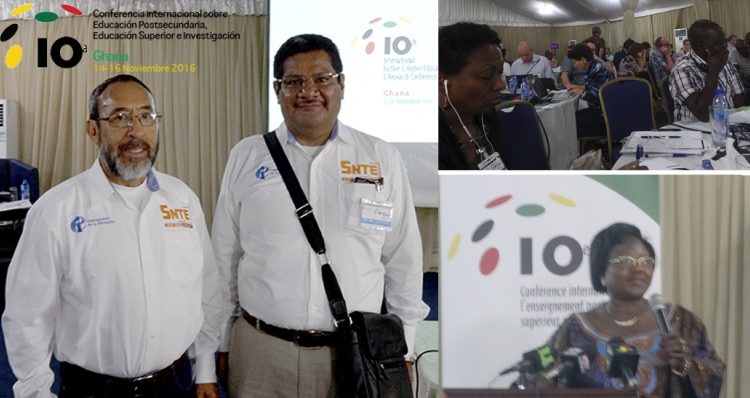
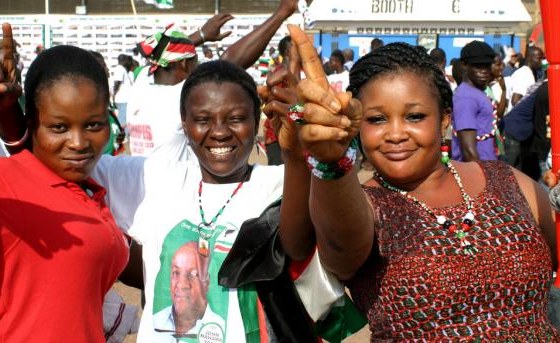
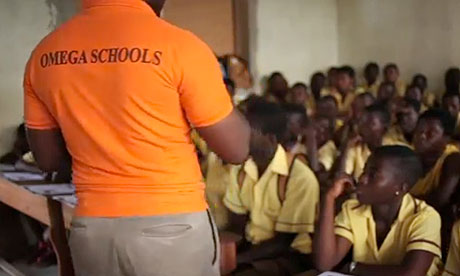
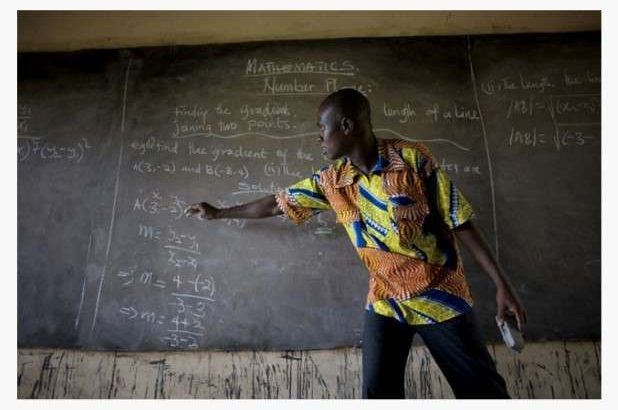
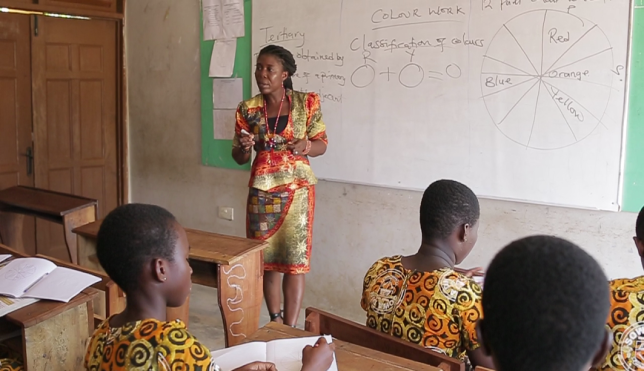

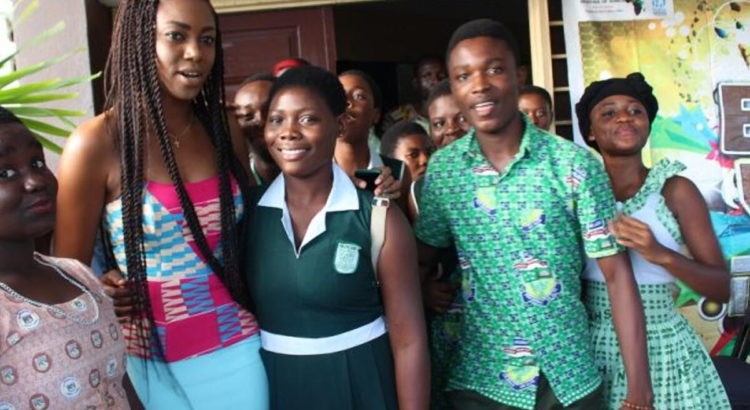







 Users Today : 33
Users Today : 33 Total Users : 35460296
Total Users : 35460296 Views Today : 44
Views Today : 44 Total views : 3419012
Total views : 3419012